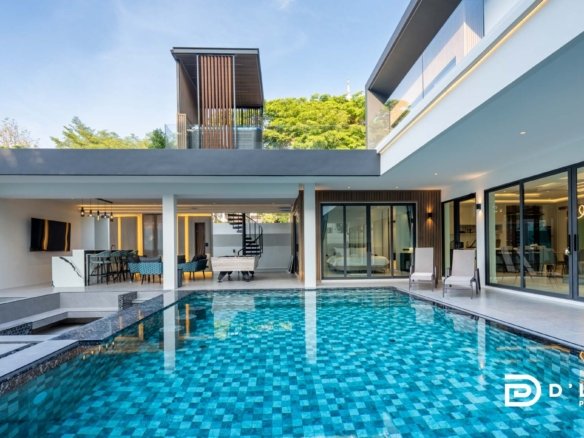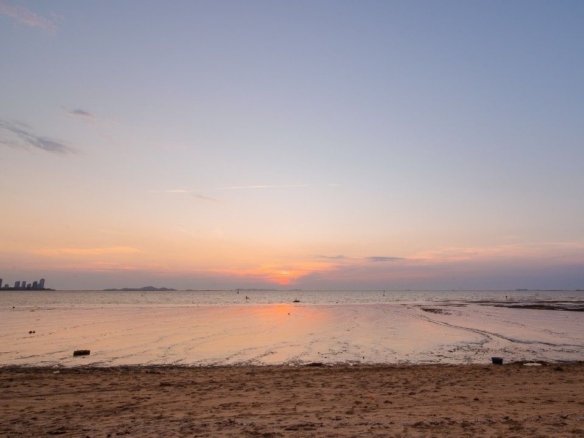Pattaya, with its vibrant lifestyle, stunning coastline, and attractive property market, draws countless foreigners seeking a piece of paradise. Buying a condominium here is the most straightforward and secure path to property ownership for non-Thais. While the process is legally sound, understanding each step is vital for a smooth and successful transaction.
This guide outlines the essential stages of purchasing a condo in Pattaya as a foreigner, ensuring you’re well-informed from initial search to receiving your title deed.
Step 1: Define Your Needs & Set Your Budget
Before you begin Browse listings, clarify what you’re looking for.
- Property Type & Size: Studio, 1-bedroom, 2-bedroom, family unit?
- Location: Central Pattaya’s vibrancy, Jomtien’s relaxed beach vibe, Pratumnak’s luxury, or quieter areas in East Pattaya?
- Amenities: Pool, gym, security, sea view?
- Purpose: Personal use, rental investment, or retirement?
- Budget: Crucially, determine your maximum budget, including not just the property price but also all associated closing costs and ongoing fees (which we discussed in a previous guide).
Step 2: Property Search & Selection
This is where the excitement begins!
- Engage a Reputable Real Estate Agent: A local agent (like https://www.google.com/search?q=Realestate-Pattaya.com) with deep market knowledge is invaluable. They can filter properties based on your criteria, provide insights into neighborhoods, arrange viewings, and help negotiate.
- Online Portals: Browse listings on major property websites, but always cross-reference or work with a local agent to verify details.
- Shortlist Properties: Select a few units that best match your preferences for physical viewing. Consider factors like building quality, common areas, management, and proximity to amenities.
Step 3: Crucial Due Diligence (Non-Negotiable for Foreign Buyers)
This is arguably the most important stage. Always engage an independent, reputable Thai property lawyer. Do not rely solely on the seller’s or developer’s legal team.
Your lawyer will conduct thorough checks, including:
- Verify Title Deed (Chanote): Confirm the seller is the rightful owner, that the title deed is authentic, and that there are no existing mortgages, liens, or legal disputes against the property.
- Check Foreign Ownership Quota (49% Rule): For freehold condos, Thai law stipulates that foreigners can own up to 49% of the total floor area in a condominium building. Your lawyer will obtain a “Foreign Quota Certificate” from the Condominium Juristic Person (building management) to confirm the unit is eligible for foreign freehold transfer.
- Review All Contracts: Meticulously review the Reservation Agreement and the detailed Sale and Purchase Agreement (SPA). Ensure all terms (price, payment schedule, responsibilities for fees/taxes, completion dates for new builds, warranties) are clear and protect your interests.
- Developer Background (for New Builds): Investigate the developer’s track record, financial stability, and past project delivery. Verify construction permits and environmental approvals.
- Condominium Regulations: Understand the rules and regulations of the building (e.g., pet policies, renovation rules, parking, voting rights in the Owners’ Association) and the common area fees and sinking fund contributions.
Step 4: Reservation & Deposit
Once you’ve found your ideal condo and your lawyer has given preliminary approval, you’ll secure the unit.
- Reservation Agreement: You’ll sign a formal reservation agreement (or “booking form”) with the seller or developer.
- Reservation Deposit: A non-refundable deposit (typically 50,000 THB to 200,000 THB for resale, or 5-15% for new builds) is paid. This takes the unit off the market for a specified period (e.g., 2-4 weeks) during which your lawyer completes detailed due diligence and prepares the SPA.
- Important: Ensure the reservation agreement clearly states the conditions under which the deposit is refundable (e.g., if due diligence reveals insurmountable issues or the foreign quota isn’t available).
Step 5: Remitting Funds from Overseas (Crucial for Freehold)
This step is vital for foreigners seeking freehold condo ownership.
- Foreign Currency Transfer: The full purchase price of the condominium must be remitted from outside Thailand in foreign currency. It cannot come from an existing Thai bank account unless that money was also recently remitted from abroad for this specific purpose and proper documentation exists.
- Purpose of Transfer: Instruct your bank overseas to clearly state the purpose of the transfer as “to purchase a condominium in Thailand” (or similar wording) on the SWIFT transfer form.
- Foreign Exchange Transaction (FET) Form: For amounts equivalent to USD 50,000 or more, the receiving Thai bank must issue a Foreign Exchange Transaction Form (FET form, formerly known as Thor Tor 3). For lesser amounts, your Thai bank can issue a “Credit Note” or “Bank Letter” confirming the foreign currency inflow and conversion.
- Beneficiary Name: The name of the beneficiary on the FET form (or equivalent document) must be the same as the buyer’s name on the Sale and Purchase Agreement.
- Why it’s Crucial: This document (FET form/Bank Letter) is mandatory for the Land Department to register freehold ownership in a foreigner’s name. Without it, the transfer will be denied.
Step 6: Signing the Sale & Purchase Agreement (SPA)
After successful due diligence and fund remittance, the SPA is signed.
- Legal Review: Your lawyer will meticulously review the SPA to ensure all terms and conditions are fair, legal, and protect your interests.
- Payment Schedule: The SPA will outline the payment schedule, which may involve a down payment (for new builds) and the final balance payment.
- Seller’s & Buyer’s Obligations: Clearly defines responsibilities for taxes, fees, and any necessary repairs or conditions before transfer.
Step 7: Transfer of Ownership at the Land Department
This is the official completion of the purchase.
- Attendees: On the agreed transfer date, both the buyer (or their lawyer with a Power of Attorney) and the seller (or their representative) will attend the local Land Department office in Pattaya.
- Document Submission: Your lawyer will present all necessary documents, including:
- Buyer’s Passport copy (with valid visa stamp).
- FET form/Bank Letter (proof of foreign currency remittance).
- Sale and Purchase Agreement.
- Condominium Juristic Person’s certificate (confirming foreign quota availability and no outstanding common area fees).
- Seller’s ownership documents.
- Payment of Closing Costs: All applicable transfer fees, specific business tax (if any), stamp duty (if any), and withholding tax are paid directly at the Land Department. The officer will calculate the exact amounts.
- Registration: The Land Department officer will register the transfer of ownership, update the Condominium Unit Title Deed (Chanote), and record your name as the new owner.
- Receive Title Deed: You (or your lawyer) will receive the original updated Chanote as legal proof of your ownership.
Step 8: Post-Purchase Actions
Congratulations, you’re a Pattaya condo owner! A few final steps ensure a smooth transition:
- Utility Transfers: Transfer electricity, water, and internet bills into your name.
- Common Area Fees: Ensure you understand and arrange payment for the monthly or annual common area fees to the condominium’s Juristic Person.
- House Registration Book (Tabien Baan): While not proof of ownership, you can apply for a blue (Thai citizen) or yellow (foreigner) Tabien Baan for your unit, which serves as a registration of residence. This is optional for foreigners.
- Property Insurance: Consider obtaining property insurance for your unit.
- Property Management (if renting out): If you plan to rent out your condo, engage a reliable property management service.
Conclusion: Your Seamless Path to Pattaya Condo Ownership
Buying a condominium in Pattaya as a foreigner is a well-defined and secure process, provided you follow the correct legal steps and engage the right professionals. The most important investment you can make is in a competent, independent Thai property lawyer who will safeguard your interests and ensure compliance with all regulations.
Ready to start your journey to owning a piece of Pattaya?
Contact Realestate-Pattaya.com today. Our experienced team can guide you through every step, connect you with trusted legal counsel, and help you find the perfect condominium that meets your needs.




Join The Discussion